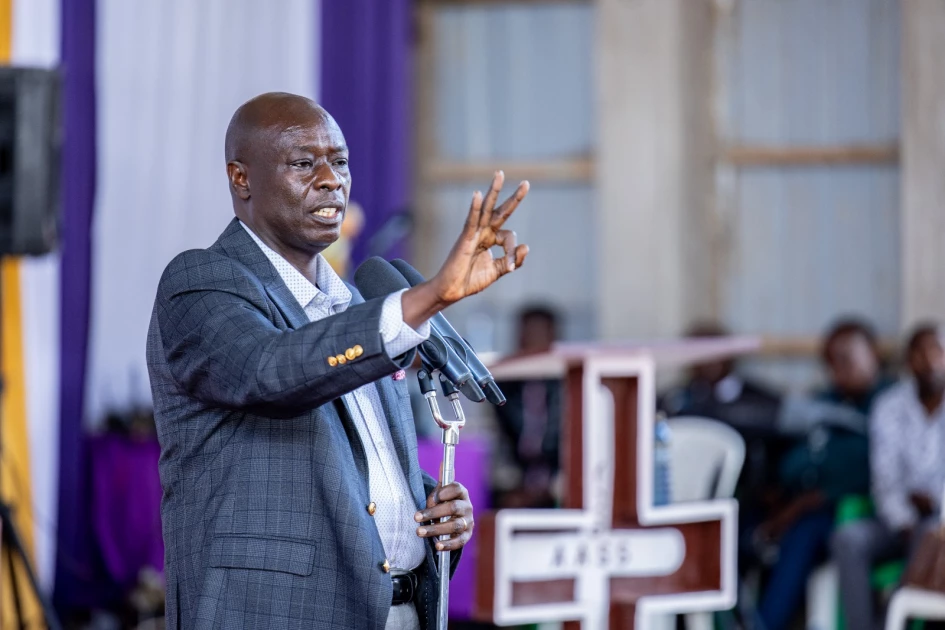Narok High Court Upholds 28-Year Sentence for Convicted Robber

Wesley Sigilai’s harrowing experience on the night of August 7, 2017, in Nkaron village, Narok subcounty, led to a 28-year prison sentence for his attacker, Ezra Kimutai Sigei. Sigilai was walking home around 11 pm when he noticed a man trailing him. As suspicion grew, the trailing man passed him and then circled back.
Identified as Ezra Kimutai Sigei, the assailant followed Sigilai until he vanished into nearby bushes to avoid other villagers using the road. Upon his return, Sigei attacked Sigilai, striking him and stabbing him near the ears and left upper eye. During the assault, Sigei informed Sigilai that he had been searching for him.
After robbing Sigilai of Sh41,800, Sigei left him unconscious. Fortunately, Good Samaritans found Sigilai, escorted him home, and later took him to Longisa Hospital, where he regained consciousness.
It was subsequently revealed that after committing the violent robbery, Sigei visited Kiprono Mutai around 3 am. Sigei, who was barefoot and had a considerable amount of money, invited Mutai to join him for what he referred to as “election money.”
However, Mutai grew suspicious upon seeing the money, fearing it had been stolen, especially after observing blood on Sigei’s fingers. Upon learning of a robbery with violence in the area, Mutai suspected Sigei’s involvement.
Nine days later, on August 16, Sigilai reported the robbery against Sigei, whom he had identified during the incident, at Melelo police station. Witnesses led officers to the robbery scene, where they recovered a torch, sandal, and jacket. The jacket, identified as Sigilai’s, had a torn pocket and blood stains.
On August 18, 2017, a warrant of arrest was issued for Sigei, leading to his apprehension. He was subsequently arraigned, and the prosecution presented seven witnesses in the case.
Among the witnesses was Isaiah Cheruiyot, who testified that on the night of the incident around 10:30 pm, he encountered Sigilai. Cheruiyot also saw Sigei, who was carrying a torch and open shoes. Later, he heard cries from the road and found Sigilai injured.
Cheruiyot and others assisted Sigilai to his home and then escorted him to the hospital. Two clinical officers also provided testimony, one reconstructing treatment notes from Longisa Hospital and the other examining Sigilai to complete a P3 form.
The examination revealed that Sigilai had five stitched head wounds, a cut wound near the eye that required stitching, and redness in the right eye. Sigilai also reported pain in the right chest, and the injuries were determined to be about nine days old.
Following the trial, Sigei was found guilty of robbery with violence, convicted, and sentenced to 28 years in prison. Dissatisfied with the decision, he appealed to the High Court in Narok.
Sigei argued that the prosecution had not proven the case beyond reasonable doubt and claimed that the evidence was fabricated, with his identity inadequately established.
In response, the prosecution contended that it had presented sufficient evidence, emphasizing that despite the late hour, there was adequate moonlight for Sigilai to clearly identify his attacker. The prosecution maintained that this was a case of recognition rather than identification.
The High Court, after reviewing the case, concluded that the prosecution had indeed proven the charge of robbery with violence beyond a reasonable doubt. It was established that Sigei had wielded a dangerous and offensive weapon during the robbery and had attacked and injured the victim.
Regarding the sentence imposed, the High Court found that the level of violence inflicted on Sigilai warranted either a death sentence or a lengthy prison term. The Penal Code prescribes a death sentence for robbery with violence. Therefore, the Court upheld the sentence imposed by the trial court.
Judge Francis Gikonyo noted that the trial court had considered the Supreme Court’s guidance on the discretion of mandatory sentences and had weighed the gravity of the offense. The trial court was also aware of the time Sigei had spent in custody. Section 333(2) of the Criminal Procedure Code was considered in light of the sentence.
Judge Gikonyo dismissed Sigei’s appeal, affirming his 28-year prison sentence.




